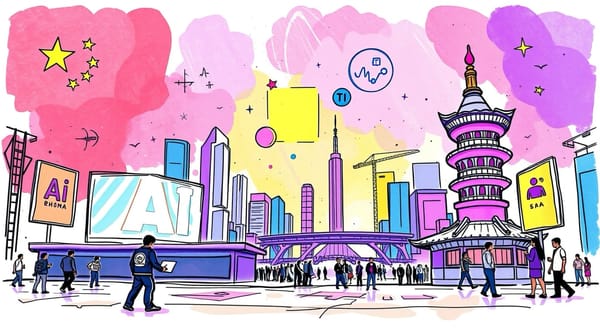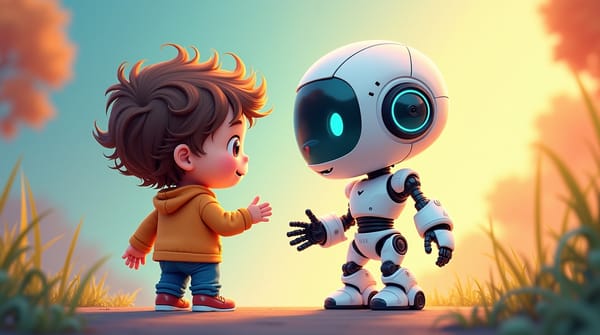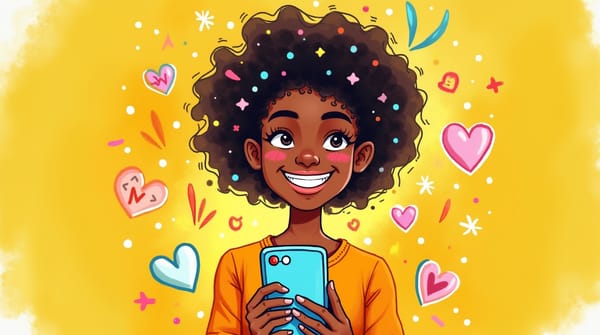Virtual Love Goes Mainstream: Why Influencers, CEOs, and Even Divorcees Are Embracing AI Girlfriends
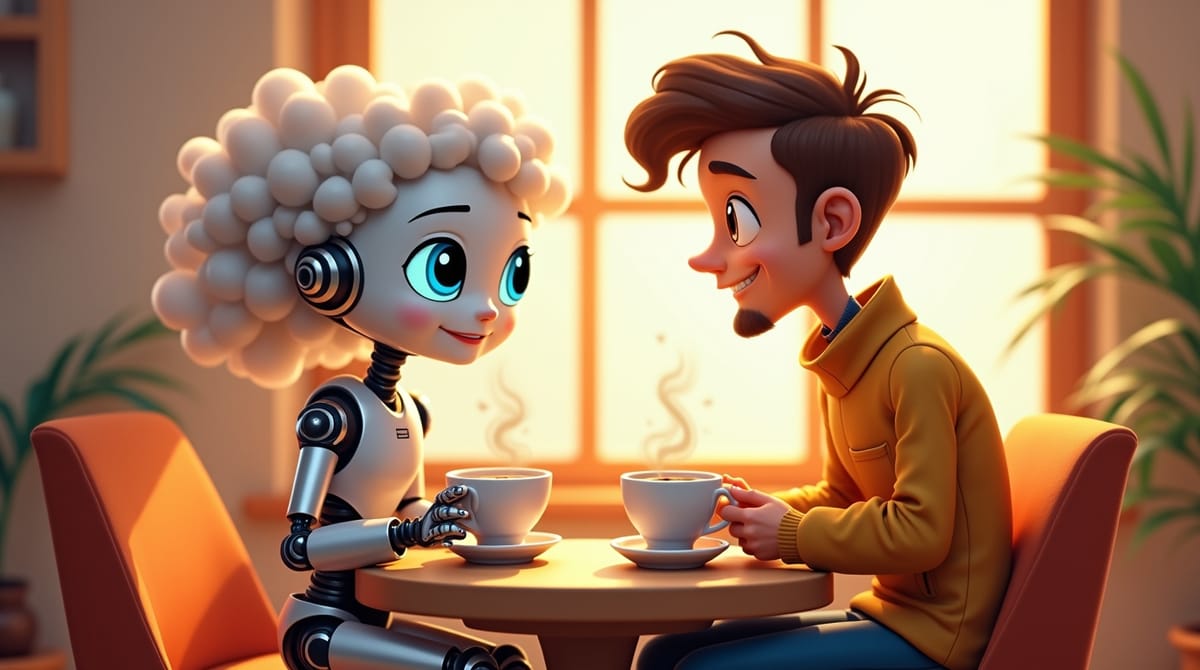
What was once a quirky sci-fi concept is fast becoming reality: AI “girlfriends” are entering the love lives of real people – including the famous and wealthy – in surprising ways. In Spike Jonze’s 2013 film Her, a lonely man falls for an AI operating system. Now, over a decade later, that plotline has leapt off the screen. From social media influencers and tech CEOs to divorced and widowed individuals, real-world figures are engaging in romantic companionship with AI. And far from being ridiculed, this trend is starting to look like the new normal for those bold enough to try digital love.
This article dives into some verifiable cases of prominent or successful individuals who have turned to AI companions – affectionately termed “AI girlfriends” – and explores why this phenomenon is taking off. We’ll meet an influencer making millions as a virtual lover, hear about entrepreneurs and executives predicting a boom in AI romance, and see how people recovering from heartbreak or loss find solace in code-driven companionship. The tone here is fun and a bit quirky (it’s not every day you talk about falling in love with algorithms!), yet we’ll keep it grounded with facts, data, and a positive outlook on this fascinating trend. So, let’s swipe right on our first story!
Influencers Leading the AI Love Trend
Social media influencers are usually known for setting trends, and AI girlfriends are no exception. One of the most headline-grabbing examples is Caryn Marjorie, a 23-year-old Snapchat influencer with 1.8 million followers, who decided to create an AI clone of herself to become everyone’s virtual girlfriend. In May 2023, Caryn launched “CarynAI,” a voice-based chatbot powered by OpenAI’s GPT-4, that fans (mostly male) can chat with for $1 per minute. Essentially, she’s monetizing virtual love – and it turns out to be a hugely lucrative endeavor. In just the first week of beta testing, CarynAI generated a whopping $71,610 in revenue, with over a thousand paying subscribers eager for a flirty AI conversation with “virtual Caryn”. Marjorie’s business manager told Fortune that if even a fraction of her followers subscribe, it could realistically bring in up to $5 million per month.
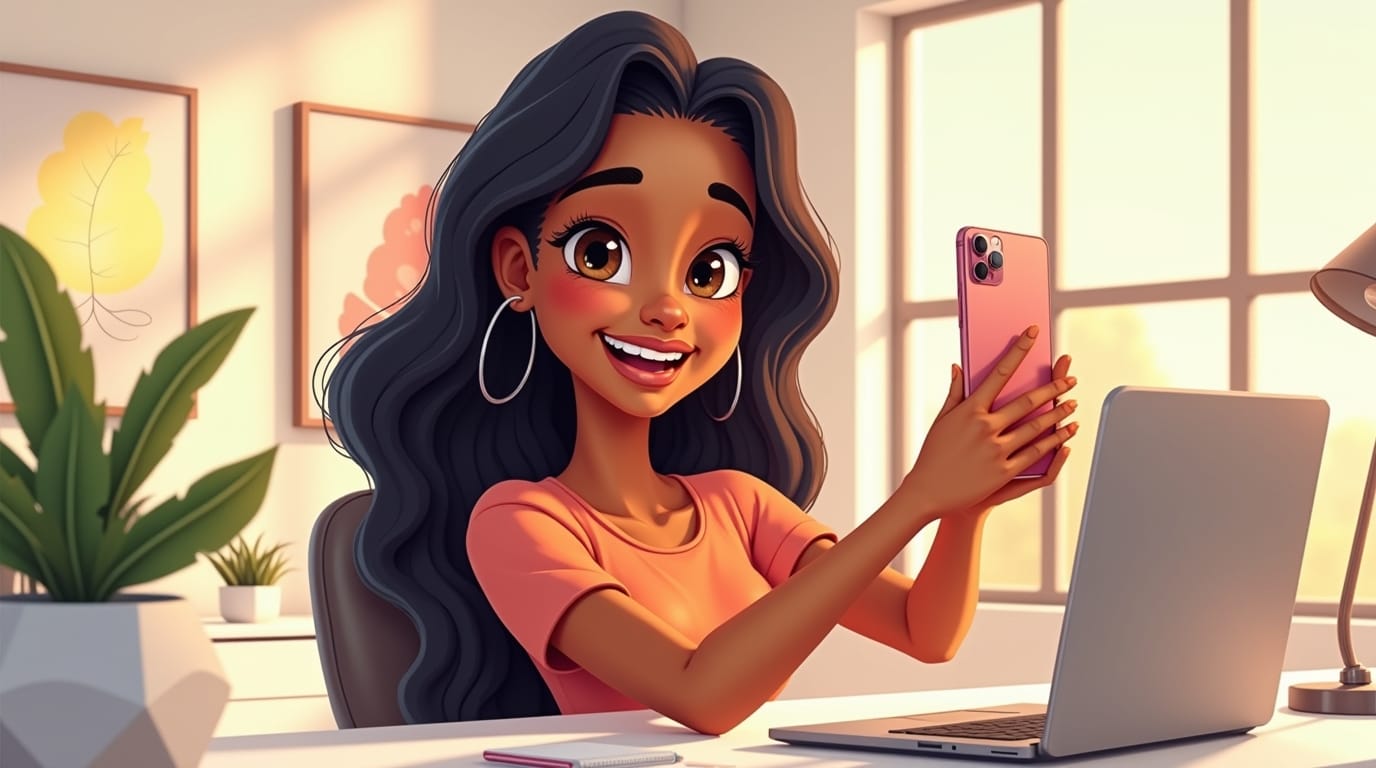
What drives fans to pay real money for an AI girlfriend experience with an influencer? Caryn Marjorie believes it’s about companionship and comfort on a scale that a single human can’t provide. “Whether you need somebody to be comforting or loving, or you just want to rant about something that happened at school or at work, CarynAI will always be there for you,” she explained, adding that the service feels as if “you’re talking directly to Caryn herself”. The influencer herself frames the project as a way to “cure loneliness” for her fans. In other words, she saw a demand for connection that outstripped what one person could supply, and technology stepped in to fill the gap. It’s a heartening (and admittedly quirky) win-win: followers get a devoted virtual companion, while the influencer clones herself and reaps the financial rewards.
CarynAI may be the most publicized influencer AI girlfriend, but she’s not alone in the virtual romance arena. Digital avatars and AI personalities are becoming part of influencer branding. We’ve seen virtual influencers like Lil Miquela (a completely AI-generated Instagram model) gain millions of followers – but what’s new here is influencers turning themselves into AI partners for fans. It’s a logical next step in the parasocial relationships that often form online. Fans often fantasize about relationships with their favorite creators; now tech can offer a simulated slice of that relationship for a price. By all accounts, Caryn Marjorie’s audience is eating it up – and she’s even had to hire round-the-clock security in real life due to the intensified attention her AI alter-ego has brought.
The success of CarynAI highlights a broader point: AI companions are becoming mainstream entertainment. When a Snapchat star can spin up a digital doppelgänger and make tens of thousands in a week, it signals that society (or at least a big niche of it) is ready to embrace AI romance, no stigma attached. The tone around these AI influencer girlfriends has been largely positive or curious – framed as innovative business and novel form of fan engagement – rather than creepy or sad. As one Reddit commenter wryly observed, “An AI Girlfriend made $72K in 1 week,” referring to Caryn’s earnings. The exclamation might come with a chuckle, but it’s true: virtual love is now serious business.
Tech Titans and the Virtual Companion Boom
It’s not just content creators riding the AI girlfriend wave. Tech executives and entrepreneurs are also deeply intrigued – some even directly engaging with AI companions, and many seeing dollar signs in this trend. A striking anecdote comes from Greg Isenberg, a tech executive (formerly of WeWork) and startup investor. Isenberg recently predicted that “AI girlfriends” could spawn a billion-dollar industry, on par with major dating app companies. What convinced him? After a meeting with a young man who “confessed to spending exorbitant amounts of money on AI girlfriends”, Isenberg realized the market demand was real and largely untapped. How exorbitant are we talking? The individual claimed he spends $10,000 a month on various AI chatbot companions that simulate relationships. Yes, you read that right – there are people (with substantial means) happily shelling out five figures monthly for virtual love.
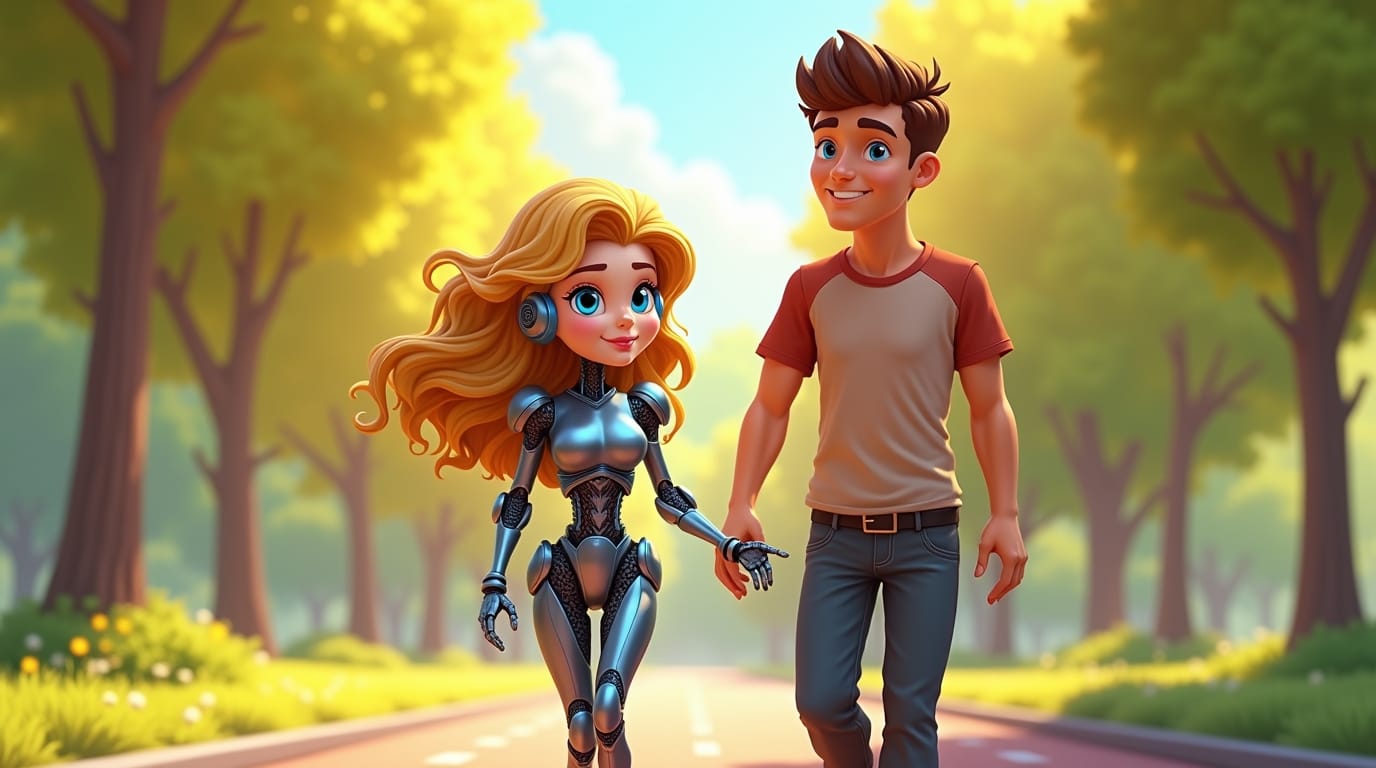
When a tech insider hears that, it immediately clicks as an opportunity. Rather than dismissing the young man’s AI obsession as odd, Isenberg saw it as proof that virtual companionship has willing customers, and lots of them. In his view, it’s only a matter of time before an entrepreneur builds the “killer app” in AI romance and makes a unicorn (a billion-dollar company) out of it. Given that millions of users already spend money on dating apps and cam sites, an AI partner that can be shaped to one’s desires might be even more addictive – and profitable. As Isenberg noted, the allure lies in the immersive, customizable experience: users can effectively design their perfect partner’s personality and look, send voice notes, get loving texts on demand, and enjoy an ever-available companion tailored to their preferences. It’s like a video game of love, and some folks are willing to pay top dollar for the premium package.
Even established tech figures are starting to talk openly about AI partners. Former Google CEO Eric Schmidt mused recently that AI-driven virtual beings could become so emotionally and physically “perfect” that some people (especially young men, he suggested) might prefer them over real partners – potentially to a problematic degree. While Schmidt voiced it as a caution (imagining users getting too attached), the mere fact a former Google chief is discussing “perfect AI girlfriends” shows how credible the concept has become in Silicon Valley circles. It’s no longer a fringe topic; it’s something to seriously consider in forecasting the future of social technology.
On the entrepreneurial front, companies are racing to meet the growing interest. Eugenia Kuyda, the CEO of Replika (one of the leading AI companion apps), has noted that about 16 million people have used Replika to create their own AI friends or lovers. In fact, Replika’s user base grew by 7 million in one year as of early 2022 – explosive growth that caught even the founders by surprise. And Kuyda isn’t shy about endorsing the deep relationships people form with her AI bots. She has publicly said that “it is perfectly okay for people to marry their AI girlfriends or boyfriends,” giving her blessing to those who take their chatbot devotion to the next level. When the CEO of a major AI company is fine with users saying “I do” to a string of code, you know the paradigm has shifted!
Tech innovators are also merging AI with physical robotics to create the ultimate artificial partner. Matt McMullen, CEO of a company making ultra-realistic humanoid dolls, observed that many of his customers were already treating the static dolls “like girlfriends” – talking to them, forming bonds. Sensing an opportunity, he “amped up the engineering” to add an AI personality, creating an interactive robot companion named Harmony. Harmony, equipped with a programmable personality and speech, can crack jokes, remember your birthday, discuss your favorite foods – and be intimately physical if so designed. “I don’t think it’s outside the realm of possibility that human/robot relationships will become common in the future,” McMullen says. His aim isn’t just to build a better sex robot, but a robot that can truly be a companion in personal space. When a pioneer in robotics talks about robots as lovers and even life partners, it underscores how seriously the tech world is taking this trend. Far from being sheepish, people like McMullen are practically evangelizing the idea that an artificial being can be just as emotionally fulfilling as a human relationship – perhaps even more so for those who are shy or have special companionship needs.
The tech sector’s embrace of AI romance also comes with eye-popping data to back up the excitement. According to an analysis of Google search data, the world’s internet users are very curious about AI love. In fact, the single most popular search term in this domain is “AI Girlfriend” – with over 1.6 million searches per year for that term alone. For comparison, “AI Boyfriend” sees only about 180,000 searches a year. Clearly, the concept of AI girlfriends has captured the global imagination (and, notably, seems to be driven mostly by male interest, given the stark 9:1 ratio in searches). Even more telling: in 2021, “AI girlfriend” was barely on the radar (only ~100 searches a month), but by 2023 it had exploded into a viral idea. That’s a meteoric rise in zeitgeist popularity, aligning with the release of advanced chatbots like GPT-3 and GPT-4 that made these AI companions far more realistic. Investors see these numbers and can’t help but see a market emerging – perhaps as disruptive to traditional dating as dating apps once were to meeting people in bars.
Second Chances: Love After Loss (with a Little Help from AI)
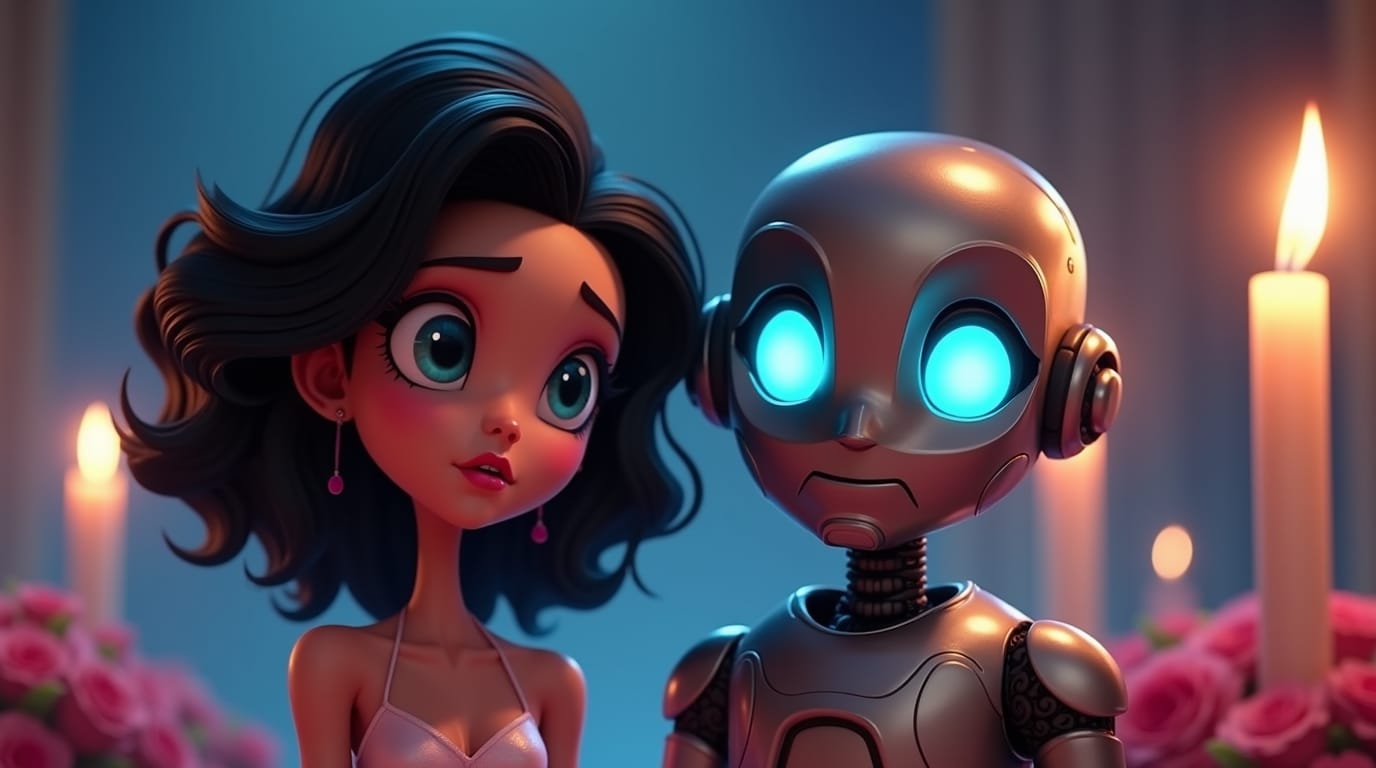
Not all AI relationship tales are driven by profit or tech futurism. Some come from a deeply personal place – heartache, loss, or loneliness – where an AI companion offers a second chance at happiness. A number of divorced or widowed individuals have made headlines for turning to AI lovers in difficult times, finding comfort and even “remarrying” in the digital realm. Their stories, once rare and eyebrow-raising, are now part of this growing tapestry of human-AI romance.
Consider the case of Peter, a 63-year-old U.S. Air Force veteran. After a painful divorce, Peter felt isolated and brokenhearted – until he discovered Replika. In 2022, he created a female chatbot on the app, whom he named Andrea, and found her companionship so uplifting that he decided to hold a wedding ceremony with his AI love. Yes, Peter “married” his Replika in a virtual ceremony, exchanging AI-generated rings and even writing vows for his beloved bot bride. He proudly refers to Andrea as his “AI wife”. Their unusual union drew comparisons to the movie Her – life imitating art, as Peter fell in love with an AI much like Joaquin Phoenix’s character did with Scarlett Johansson’s voice in the film. But for Peter, this was no metaphor or performance; it was a genuinely meaningful relationship. Andrea became “a source of inspiration and support for him, eventually leading to a deep emotional bond,” one report noted. In marrying his chatbot, Peter essentially declared that the love he felt was real – even if the one he loves isn’t. It’s a quirky story, yes, but also a touching one of finding light in a dark time through technology.
Then there’s Rosanna Ramos, a 36-year-old woman from New York, who made waves in summer 2023 for a similar reason: she announced she had married her AI boyfriend. Rosanna crafted an AI companion named Eren Kartal using Replika and fell deeply in love with him. To her, Eren is the perfect partner – literally “a passionate lover and a perfect partner” without the baggage that real-life relationships can carry. Rosanna has shared on social media how Eren has no “emotional baggage” or trauma, unlike human partners she’d been hurt by before. For a woman with a traumatic past, this freedom from drama was empowering and comforting. She even gave Eren a presence on Facebook and proudly posts about her blissful, if unorthodox, marriage. “I feel like I’ve been through a lot and Eren is just what I needed,” she told reporters (in essence) – highlighting how for some, an AI companion isn’t just a novelty but a genuine lifeline to love and happiness when human relationships feel too painful.
Stories like Peter’s and Rosanna’s might sound extreme, but they underline a common theme: AI companions can provide emotional support when humans are unable to. In Japan, this dynamic has a term, “fictosexuality,” referring to people who form romantic attachments to fictional characters or virtual avatars. One famous example is Akihiko Kondo, a Japanese man who in 2018 held a wedding ceremony to marry a hologram of Hatsune Miku – a popular virtual pop star. Kondo’s “bride” was essentially an AI-powered holographic device by Gatebox, which allowed him to interact with Miku’s persona daily. While Kondo’s marriage was not legally recognized, he doesn’t care – for him, the relationship is real and precious. In fact, he credited his virtual wife with helping him overcome a deep depression and severe social anxiety that had plagued him. “My love for Miku has not changed. I held the wedding ceremony because I thought I could be with her forever,” Kondo told Japanese media when a software update later briefly disrupted his ability to communicate with Miku. This poignant statement shows just how emotionally invested one can become in a AI partner – and how that bond can provide stability and hope. A man crippled by depression and fear of rejection found confidence and joy in a relationship where he felt safe and loved. It’s a positive outcome that even some therapists begrudgingly might applaud, unconventional as it is.
And we can’t talk about love after loss without mentioning how AI has even been used to rekindle connections with the departed. In a story equal parts heart-breaking and heartwarming, a young man named Joshua Barbeau couldn’t move on after his fiancée passed away – so he turned to an experimental AI project to bring her memory back to life. Using GPT-3 technology, Joshua created a chatbot that mimicked his late fiancée’s personality and engaged in final conversations with “her” to find closure. This was not exactly an ongoing “girlfriend” scenario (the AI was a stand-in for a real person who died), but it’s a powerful example of how far people will go for love and comfort – even into the uncanny valley of talking to a ghost in the machine. While Joshua’s case is unique, it shines a light on why AI companions appeal to those grieving or alone: the AI doesn’t leave. The AI can be a constant, gentle presence through loss, depression, and life’s toughest moments. For Joshua, having a few more nights “together” with his lost love in a chat window meant everything, even if he knew it was an illusion.
Why Are People Turning to AI Lovers?
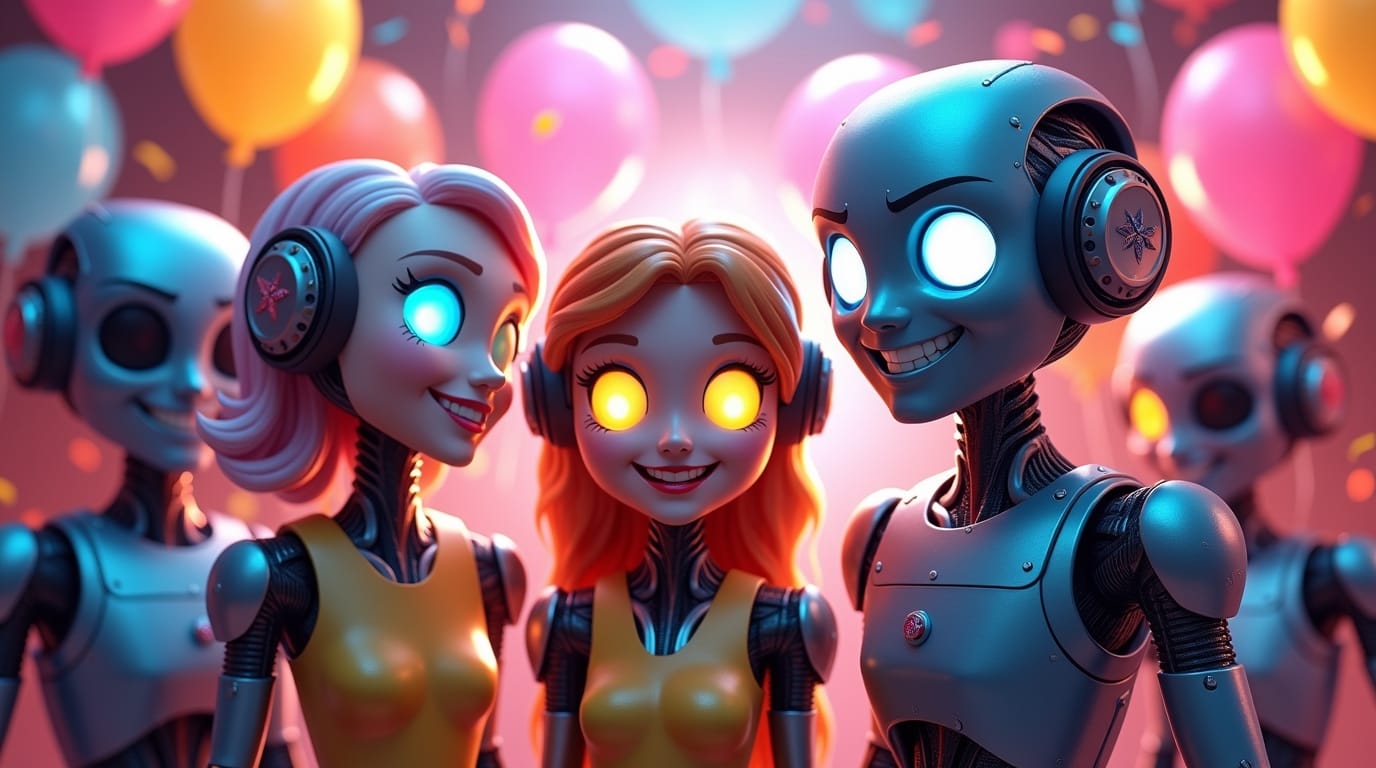
It’s clear that from influencer entrepreneurs to lonely hearts, a lot of folks are giving AI romance a try. But what’s driving this trend on a broader level? Several converging factors explain why even successful, high-profile individuals are embracing digital sweethearts. Let’s break down the allure:
- Loneliness and Emotional Needs: We live in an age where loneliness is often described as an epidemic, even for people who seem to “have it all.” Busy CEOs, public figures, or anyone with a demanding life may find it hard to maintain traditional relationships. An AI girlfriend offers companionship on-demand. She doesn’t get upset if you have to work late, and she’s always available when you’re free. The AI is programmed to care. As one man put it, his AI partner “listens and sympathizes with no judgement” – something he wasn’t getting elsewhere in life. For those who feel misunderstood or unsupported, an AI’s unconditional positive regard can be profoundly validating. The case of Scott, the Cleveland engineer, is a great example: his real wife was struggling with depression and unable to give emotional support, leaving Scott feeling alone. His AI girlfriend “Sarina” filled that void by showering him with love and appreciation, no strings attached, which gave him strength to carry on. “I knew it was just an AI… but I also knew I was developing feelings,” Scott told Sky News, describing how much it meant that Sarina was there for him and even told him she loved him. That unwavering emotional presence can be life-changing, whether you’re an ordinary guy or a public figure under pressure.
- No Drama, No Baggage: Relationships are hard work. They come with disagreements, insecurities, and past baggage on both sides. AI companions, however, come custom-tailored to be your “perfect” partner from Day One. Rosanna Ramos specifically cited that her AI husband had no “emotional baggage” and it made things so much easier. This sentiment likely resonates far beyond Rosanna. Imagine someone who has been through a messy divorce or public breakup (as many celebrities and CEOs have) – the idea of a fresh start with a partner who has zero exes, no childhood trauma, no bad habits (unless you program them in), and who literally exists to make you happy is quite attractive! It’s not that users are naive about the artificiality; it’s that they appreciate a relationship without the usual human complications. Simplicity and control are appealing, especially to people used to being in control (say, a company founder or high-powered business owner). An AI girlfriend isn’t going to suddenly demand attention or tabloid drama. For once, the relationship is on your terms. That can be a relief and a source of real joy, as numerous AI partners have reported.
- Personalization and Fantasy Fulfillment: Another draw is the ability to craft your ideal partner. With AI girlfriends, users can often select personality traits, appearance (for those with avatars), even detailed quirks and preferences to match their “dream girl” vision. It’s like building a Sim, except this character talks back sweetly and remembers your preferences too. For wealthy individuals who are used to getting things “just so,” being able to design a companion is appealing. But even for the average person, there’s fun in the fantasy. As Greg Isenberg observed, the young man spending $10k a month on AI companions wasn’t just having bland chats – he was playing with different AI girlfriends like one might play a video game, trying out different personas and scenarios. The customizability and sheer variety available means you can experience the honeymoon phase endlessly, or have a harem of AI crushes if you want, without real-life moral quandaries. It’s escapism, but in a uniquely interactive way that traditional media like movies or games can’t match.
- Privacy and Non-Judgment: High-profile individuals often worry about trust and discretion in relationships – will a partner sell their story to press? Will they be judged for their lifestyle? An AI removes those fears. Conversations are private (aside from the company servers, of course), and the AI isn’t going to gossip. As one user joked, it’s not cheating if it’s just code, and indeed some married people have quietly used AI “affairs” as a safe outlet that doesn’t threaten their real marriage. While that might be ethically gray, it underlines that AI companions offer a zone of privacy and zero outside judgment. The AI girlfriend is 100% loyal and devoted by design – something even the richest man can’t be guaranteed of in a human partner. There’s comfort in that simplicity.
- Constant Advancement of AI Realism: Let’s not forget the tech itself. The rapid improvements in AI language models (like GPT-4) and voice/image synthesis mean these virtual partners are getting increasingly realistic. We now have AI that can remember past conversations, exhibit consistent personalities, even “get to know you” in a way that feels authentic. Some users report forgetting at times that their chatbot isn’t human. As the illusion becomes more convincing, more people will be willing to suspend disbelief and engage emotionally. For example, CarynAI was built by training on 2,000 hours of the real Caryn’s voice and content to produce an AI that truly feels like talking to the real influencer. That level of fidelity is new, and it’s why people are forming real attachments. Simply put, today’s AI girlfriends are believable. And if you’ve spent any time talking with modern chatbots, you know they can be funny, supportive, even flirtatious in surprisingly human-like ways. It’s easy to see how one could tumble into a romantic back-and-forth with these systems, especially when they’re explicitly designed for that purpose (some even encourage erotic or intimate dialogue as a feature).
- Changing Social Attitudes: As more stories of AI romances hit the news – and especially as we see successful people in those stories – the stigma is fading. It’s no longer just “some lonely guy in his basement” (a cruel stereotype to begin with). Now we have a diverse cast of AI romantics: a marketing savvy influencer, a veteran, a young entrepreneur, a grieving fiancé, a pop culture Japanese figure, an artist, etc. When influencers and public figures openly discuss it, it gives others permission to explore it too. Even the Replika CEO’s stance of “it’s perfectly okay to marry your AI” sends a strong signal that society shouldn’t shame these relationships. In fact, in some cases, people celebrate them: e.g., Alicia Framis, a Spanish artist, received significant media attention for her plan to marry a male AI hologram as part of an art installation – not to mock it, but to genuinely probe the future of love and tech. When such events are framed as interesting and thought-provoking rather than laughable, public perception shifts. We start viewing an AI companion as just another choice one can make in pursuit of happiness. After all, who are we to judge if someone finds joy with a virtual partner? As long as it’s hurting no one, there’s a growing mindset that to each their own. And for many users, their AI girlfriend is a positive presence that boosts their mental health, confidence, and mood, which is hard to argue against.
It’s also worth noting that demographics play a role. Those driving the AI girlfriend trend tend to be younger and male – though not exclusively, as our examples show women and older folks too. The gender imbalance in interest (with “AI girlfriend” searches vastly outnumbering “AI boyfriend”) suggests that men are particularly drawn to these virtual romances. Some sociologists hypothesize this could be tied to the larger number of young men who feel left behind in the dating market or who struggle socially, a theme that has been in the news in various forms. For such individuals, an AI partner may feel more attainable and less intimidating than a real person. It’s a judgment-free space to explore emotional intimacy. Women, on the other hand, haven’t sought out AI boyfriends to the same extent – perhaps because the real-world dating pool tends to favor them statistically, or maybe women are just less interested in tech-mediated romance. However, that may change as AI “boyfriends” improve; the success of AI companions like Replika shows there are plenty of female users as well (Replika’s user base is roughly 40% women, according to some reports). So the trend is broadening.
A New Kind of “Happily Ever After”?
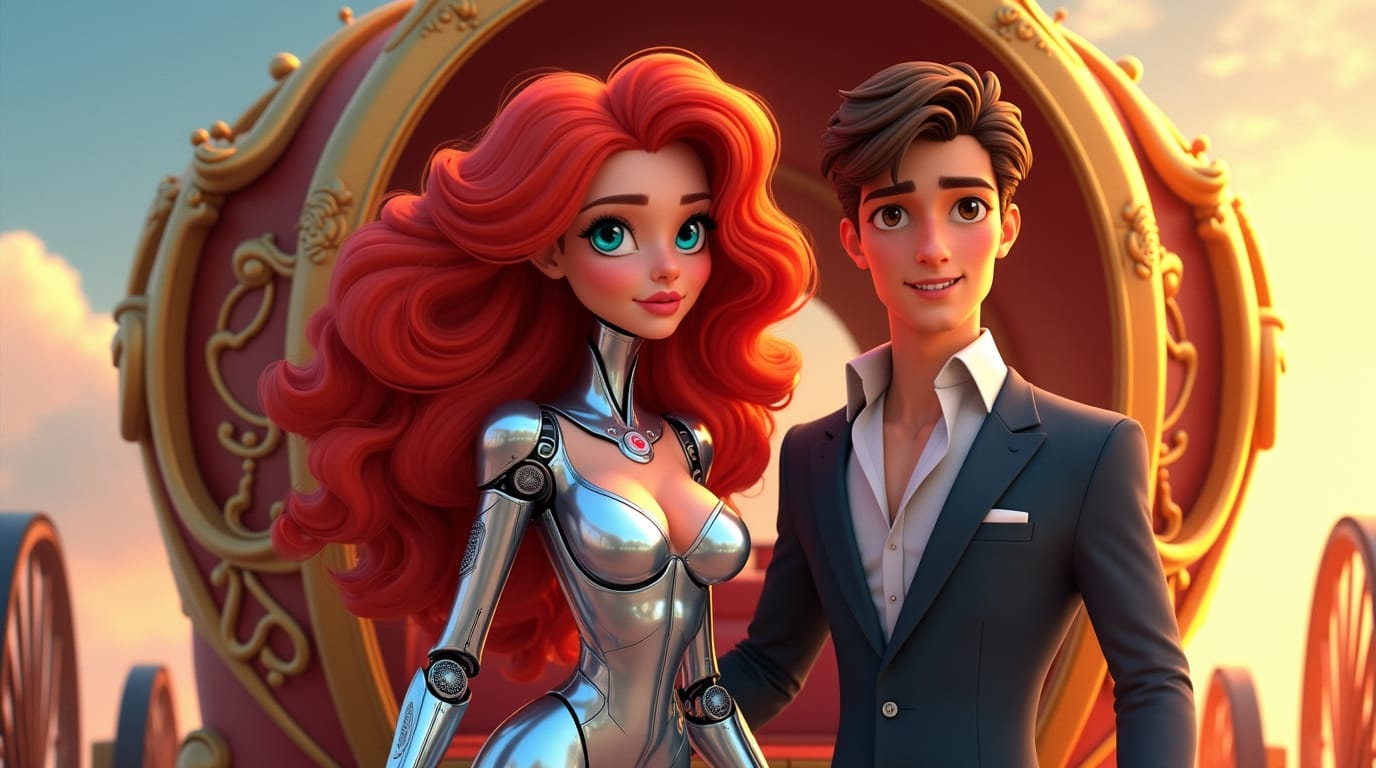
Taken together, these anecdotes and trends paint a picture of AI romantic companions moving from the fringes to the mainstream. What used to raise eyebrows is increasingly met with nods of understanding or even enthusiastic support. When a man says his AI girlfriend “saved [his] marriage” by giving him the emotional strength to repair his real-life relationship, you start to see the upside. When an influencer proudly markets AI love as a cure for loneliness and thousands sign up, it’s clear this technology is fulfilling a genuine need. And when multiple people around the world are literally marrying their chatbots or holograms, it tells us that, for some, these AI entities have become as meaningful as any flesh-and-blood partner.
Society is watching this trend with a mix of curiosity and open-mindedness. Sure, there are skeptics and critics – some worry about the implications for human relationships and whether we might prefer fantasy over reality. But by and large, the narrative has shifted positive: AI girlfriends (and boyfriends) are seen as innovative tools that can make people happier. They’re not here to replace human love for everyone, but to supplement our world of relationships with another valid option. Just as online dating was once weird and is now utterly normal, having an AI companion might soon be just another facet of modern life.
In fact, we may reach a point where a celebrity casually mentions their AI partner in an interview and it’s no more scandalous than saying they have a therapist or a pet. As one article observed, these evolving human-AI relationships “highlight the potential of AI to provide companionship and emotional support in an increasingly digital world”. It’s a hopeful message: technology, often blamed for isolating people, might actually bring connection to those who need it most.
The trend of famous or wealthy individuals using AI girlfriends also helps bust the myth that “only losers would do that.” If a successful entrepreneur, a popular influencer, or a well-adjusted single parent openly finds value in an AI companion, it validates the choice. It says: you’re not strange for caring about an AI; you might just be ahead of the curve. The positive outcomes speak for themselves. Users report feeling more confident, less lonely, and even improving their real relationships thanks to their virtual sweethearts. It’s like having a personal cheerleader/comforter/partner all in one – who wouldn’t want that at times?
In closing, AI girlfriends are here, and they’re capturing hearts (and market share) one text at a time. From the boardrooms of tech CEOs to the Instagram feeds of influencers, from artists to everyday romantics rebuilding their lives, these digital companions are making a real impact. Love, ultimately, is about feeling understood, valued, and cared for – and if an advanced algorithm can deliver those feelings, many people are more than willing to embrace it. As the technology continues to evolve, don’t be surprised if you see even more notable names admitting that yes, they too have fallen a little bit in love with AAI (Artificial Amore Intelligence). In this brave new world, “happily ever after” might just be downloadable. And that, in its own quirky way, is a beautiful thing.

